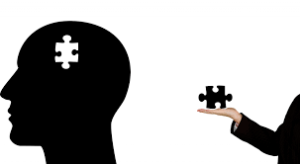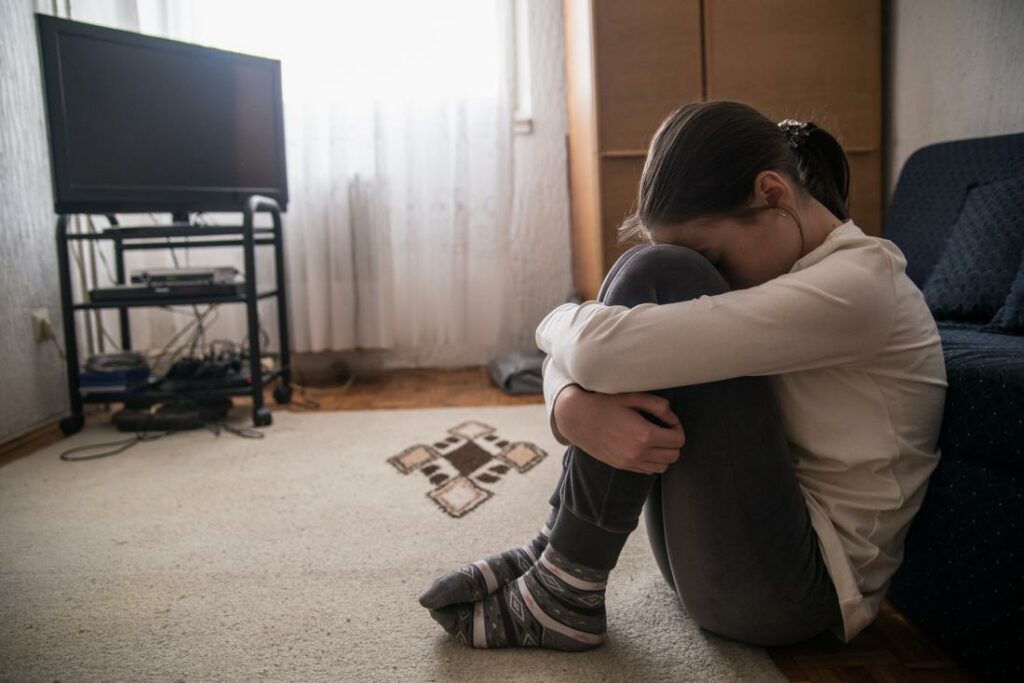Did you know that your weight can affect your mental health? It’s true! In this blog post, we will discuss the relationship between weight and depression. We will look at how obesity can lead to depression, and we will also explore ways to manage depression when you are struggling with your weight. If you are dealing with both weight and depression issues, please don’t hesitate to reach out for help. There is no shame in seeking assistance from a professional!
Contents
How Weight And Depression Are Connected?
 Depression is a condition that can lead to a range of psychological and physical problems. Many different factors can contribute to someone developing depression, including genetics, brain chemistry, and life events. One factor that is often overlooked is weight.
Depression is a condition that can lead to a range of psychological and physical problems. Many different factors can contribute to someone developing depression, including genetics, brain chemistry, and life events. One factor that is often overlooked is weight.
Recent research has shown that there is a strong connection between weight and depression. People who are overweight or obese are more likely to experience depression than those who are at a healthy weight. This connection is thought to be due to a combination of biological and psychological factors.
Biological Factors
There are several ways that weight can affect the body in a way that leads to depression. For example, being overweight or obese can lead to inflammation, which has been linked to depression. Additionally, carrying extra weight can lead to feelings of fatigue and low energy, which can also contribute to depression.
According to studies, people who are obese are also more likely to have problems with their sleep. This can be due to a number of factors, including the physical discomfort of carrying extra weight and the fact that obesity is linked to conditions like sleep apnea, which can disrupt sleep.
Psychological Factors
 In addition to the physical ways that weight can affect depression, there are also psychological factors at play. People who are overweight or obese often face discrimination and prejudice from others. This can lead to feelings of:
In addition to the physical ways that weight can affect depression, there are also psychological factors at play. People who are overweight or obese often face discrimination and prejudice from others. This can lead to feelings of:
- Isolation
- Low self-esteem
- Worthlessness
All of these feelings can contribute to the development of depression. And many people who are struggling with their weight turn to food as a way to cope with these negative emotions. This can create a vicious cycle in which someone overeats to cope with their depression and then feels even worse because of the extra weight they’re carrying.
So, the connection between weight and depression is complex. If you’re struggling with your weight, it’s important to seek help from a doctor or dietitian. And if you’re struggling with depression, don’t be afraid to reach out for help from a mental health professional. Both conditions are treatable and there is no shame in seeking help.
Can Depression Make It Hard To Lose Weight?
Sometimes, when people are depressed, they may lose interest in activities they normally enjoy, including eating. As a result, they may lose weight. Other times, people with depression may eat more than usual and gain weight. Depression can also make it hard to stick to a healthy diet and exercise routine.
When you’re feeling down, the last thing you want to do is cook a healthy meal or go for a run. But exercise and eating right are important for both your physical and mental health. If you’re struggling to lose weight, talk to your doctor about ways to get started on a healthier lifestyle.
Depression can make it hard to stick to any kind of routine, including a healthy one. But it’s important to remember that you’re not alone. There are many resources available to help you get started on a healthier lifestyle. Talk to your doctor about what might work best for you.
If depression is causing you to gain or lose weight, it’s important to talk to your doctor. Depression can affect your physical health in many ways, so it’s important to get treatment if you’re struggling. There are many resources available to help you get the treatment you need. Don’t hesitate to reach out for help.
What Are The Consequences?
 Weight and depression can have a number of consequences on your mental health. These include:
Weight and depression can have a number of consequences on your mental health. These include:
- Low self-esteem: It can be hard to feel good about yourself when you’re carrying around extra weight. You may feel like people are judging you, or that you’re not as good as others. This can lead to low self-esteem and feelings of depression.
- Loss of motivation: It can be tough to find the motivation to do things when you’re depressed. This can make it more difficult to stick to a healthy diet or exercise plan.
- Isolation: Depression can lead to isolation. You may not want to see people or go out, which can make it harder to lose weight.
- Weight gain: Weight gain is a common side effect of depression. This can make the cycle of weight and depression even harder to break.
- Decreased quality of life: Depression can make it hard to enjoy life. You may not find pleasure in things that you used to enjoy. This can lead to a decrease in the quality of your life.
If you’re struggling with weight and depression, it’s important to seek help. Talk to your doctor about your options. There are a number of treatment options available, and you don’t have to go through this alone. In fact, getting help is the first step to breaking the cycle of weight and depression.
Therefore, do not ignore or avoid the problem, be sure to talk to someone and get the help you need! If you are struggling with your weight, set up a consultation with a registered dietitian nutritionist (RDN) who can work with you on making lifestyle changes. And if you think you may be depressed, please reach out to a mental health professional. Help is available!
How Can You Manage It?
Before things get too out of control, it’s important to be proactive about your mental health and weight. If you are currently struggling with depression, here are some things that you can do to help manage your weight:
Talk to a therapist or counselor
It is one of the first steps in helping you understand your relationship with food and your body. A therapist can help you develop a healthy relationship with food and your body, which is essential for sustainable weight loss. Several types of therapy can be effective for weight loss, such as:
- Cognitive-behavioral therapy can help you change your thinking and habits around food. It can also help you develop healthy coping mechanisms for dealing with stress and emotional eating.
- Interpersonal therapy can help you improve your relationships and communication skills. This can be helpful in managing difficult emotions that lead to overeating.
- Dialectical behavior therapy can help you learn how to cope with intense emotions without turning to food.
Join a support group
Support groups provide a space for you to share your experiences with others who are going through similar struggles. These groups can be incredibly helpful in providing motivation and accountability as you work towards your goals. You can find support groups online or through your local community center.
Some groups are led by mental health professionals and can offer additional resources and guidance. If you’re struggling with depression, consider joining a weight loss support group to help you on your journey.
Talk to your loved ones
 This is incredibly important. If you’re feeling down, or think you might be depressed, talk to your friends and family. They can help provide support and may even be able to offer helpful advice. Talking to them is important because they are the ones who care about you and want to see you happy and healthy.
This is incredibly important. If you’re feeling down, or think you might be depressed, talk to your friends and family. They can help provide support and may even be able to offer helpful advice. Talking to them is important because they are the ones who care about you and want to see you happy and healthy.
Also, they know about your day-to-day life and can offer a different perspective on things. If you’re feeling really down, they may also be able to help you get professional help.
Consider aromatherapy
Aromatherapy can be used to help with weight and depression. This natural therapy uses essential oils to provide a variety of benefits. Aromatherapy can improve your mood, reduce stress, and promote relaxation. It can also help to boost your energy levels and promote better sleep.
When used in combination with other therapies, aromatherapy can be an effective treatment for weight and depression. If you are interested in trying aromatherapy, talk to your doctor or a qualified aromatherapist.
Focus on a healthy lifestyle
A healthy lifestyle is the backbone of a happy life. It’s essential to focus on your physical and mental health to maintain a good quality of life. This means:
- Exercising regularly
- Getting enough sleep
- Avoiding substance abuse
- Spending time in nature
- Keeping a journal
For some people, this also includes managing their weight. Being overweight or obese can put you at risk for many health problems, including diabetes, heart disease, and certain types of cancer. So, follow a healthy lifestyle to protect your physical health.
Dietary changes
 When talking about weight and depression, then diet is a vital role to affect mental health. To state it, what we eat can significantly change our mood and energy levels. Some foods make us feel more depressed such as;
When talking about weight and depression, then diet is a vital role to affect mental health. To state it, what we eat can significantly change our mood and energy levels. Some foods make us feel more depressed such as;
- Refined carbohydrates like white bread and crackers
- Processed foods with a high content of saturated fat
- Foods high in sugar
On the other hand, some foods can help improve our mood such as;
- Bananas (contain tryptophan which is an amino acid that the body uses to produce serotonin)
- Spinach (contain magnesium which can boost our energy and mood)
- Salmon (contain omega-three fatty acids, which can protect against depression)
Now you know that your weight can also affect your mental health. Studies have shown that there is a link between being overweight and having depression. So, it becomes more crucial to focus on overall health and mental well-being.
There are many things you can do to start living a healthier life. But it’s important to remember that it’s not about perfection. It’s about finding what works for you and making small changes that improve your overall health and well-being.
Conclusion
In conclusion, weight and depression can be a vicious cycle. Both are linked and can affect each other. For example, someone who is depressed may not have the motivation to eat healthily and exercise, which can lead to weight gain. Or, someone who is overweight may be teased and ridiculed, which can lead to depression.
It’s important to realize that both conditions need to be treated for either one to get better. If you or someone you know is struggling with either, please don’t hesitate to reach out for help. There are many resources available, and you don’t have to suffer through this alone.
For more information and guidance please get in touch with our expert therapists at Therapy Mantra. They will be more than happy to assist you on your journey to recovery. Contact us today to learn more about our services. You can also book an online therapy session or download our free Android or iOS app.
You can also visit FitMantra specially offering different online fitness programs like online weight loss program, online weight gain program, online nutritionist, and more.


